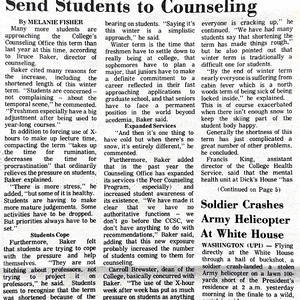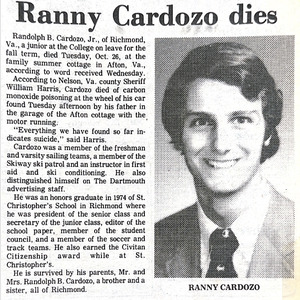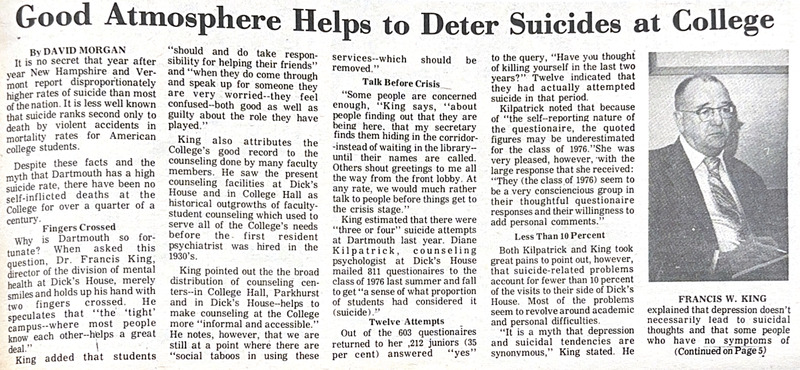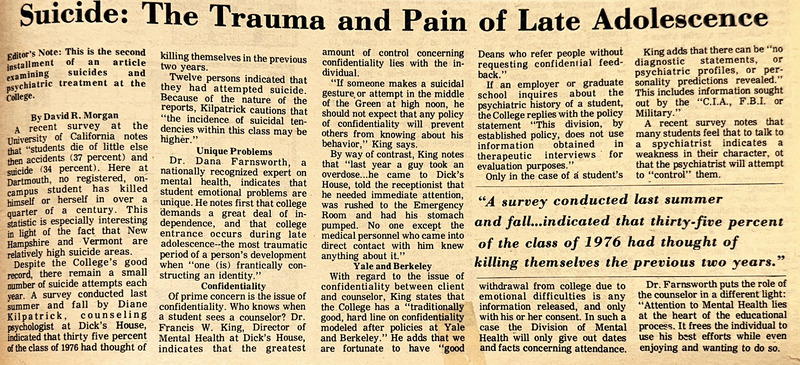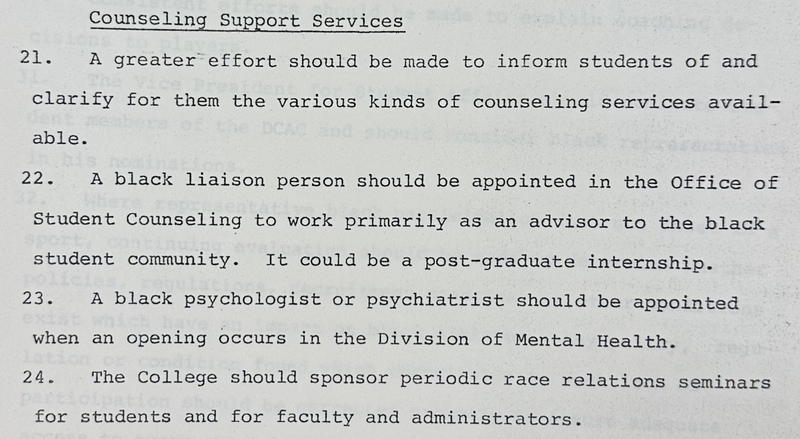Mental Health at Dartmouth in the 1970s
The mental health challenges faced by Dartmouth students in the 1970s are similar to the mental health challenges faced by students today. During the interview, Landsmark recalls being "struck by… the isolation of people into groups…and how many suicides were occurring in [her] tenure at Dartmouth. There were an awful lot, awful, awful lot, and most of it was not … being mentioned” to protect the “reputation of the College” (Landsmark 2022).
Landsmark describes Dartmouth’s trimesters as “a great deal of pressure” compared to two semesters. According to Melanie Fisher’s 1974 article in The Dartmouth, “Added Stress of Short Term Sends Students to Counseling,” trimesters have “made things rough” for students (Fisher 1974). Fisher quotes Carrol Brewster, Dean of the College, saying “The pressure being put on students this term is almost more than is good for them” (Fisher 1974). According to Bruce Baker, Director of the Counseling Office, “Freshmen especially have a big adjustment after being used to year-long courses" (Fisher 1974).
In a 1975 article “Good Atmosphere Helps to Deter Suicides at the College,” author David Morgan shares the results of a survey conducted by Diane Kilpatrick, counseling psychologist at Dick’s House. According to Morgan, Kilpatrick’s survey found that “thirty five percent of the class of 1976 had thought of killing themselves in the previous two years” (Morgan 1975). The survey also found that twelve students “had actually attempted suicide in that period” (Morgan 1975).
Dr. Francis King, director of the division of mental health at Dick’s House says that the “broad distribution of counseling centers – in College Hall, Parkhurst and in Dick’s House – helps to make counseling at the College more informal and accessible” (Morgan 1975). King acknowledges, however, that “there are social taboos in using these services” (Morgan 1975). In a second article, “Suicide: The Trauma and Pain of Late Adolescence,” Morgan explains that “many students feel that to talk to a psychiatrist indicates a weakness in their character…” (Morgan 1975).
While King claims that the College’s counseling services were “informal and accessible,” the Afro-American Society argues to the contrary. In 1976, the Afro-American Society requested counseling support services for Black students, including a Black liaison in the Office of Student Counseling, a Black psychologist or psychiatrist in the Division of Mental Health, and race relations seminars for students, faculty, and administrators.
Dartmouth College was not the only institution lacking Black mental health professionals in the 1970s. According to Stefan Bradley in Upending the Ivory Tower, students at Cornell University “demanded a Black psychiatrist or psychologist for the counseling center, highlighting the point that Black students experienced a form of stress that could perhaps be best understood by someone who may have experienced similar stressors because of race” (Bradley 2018).

